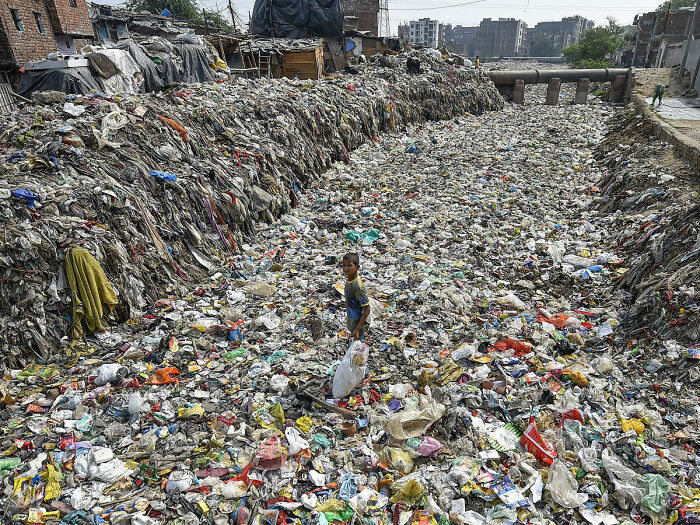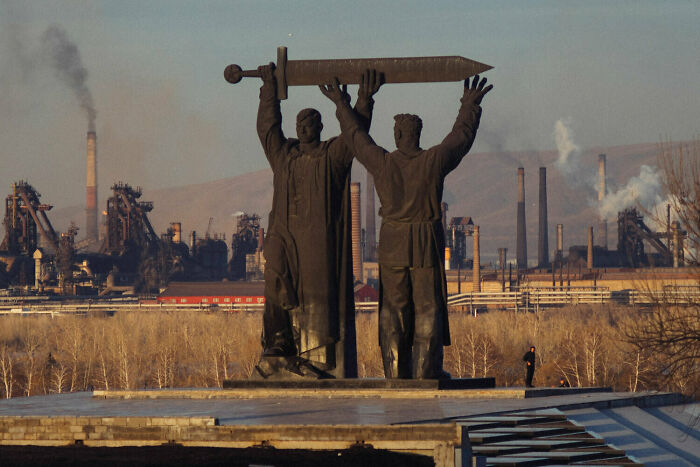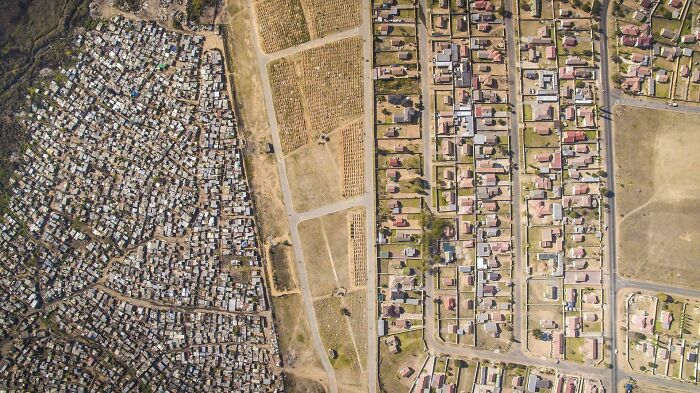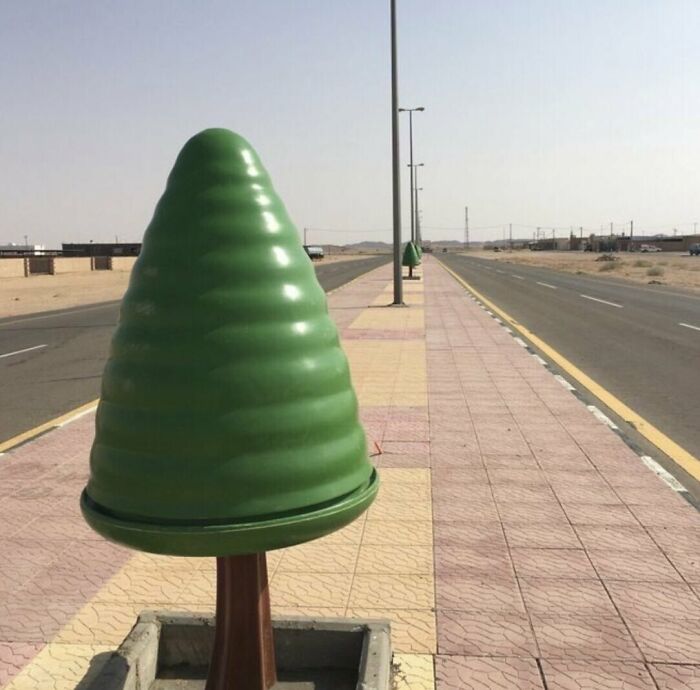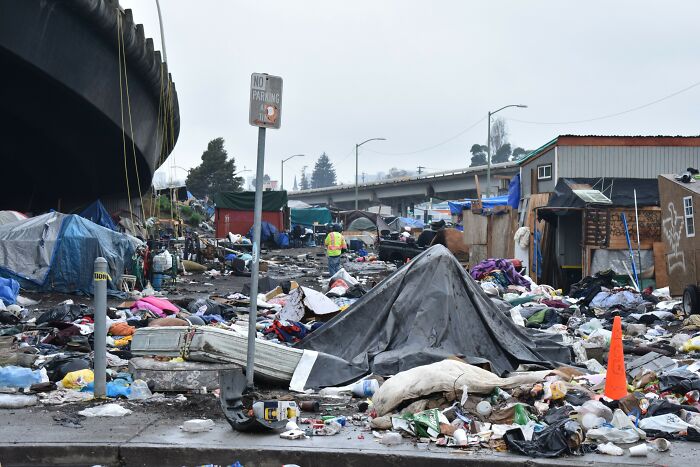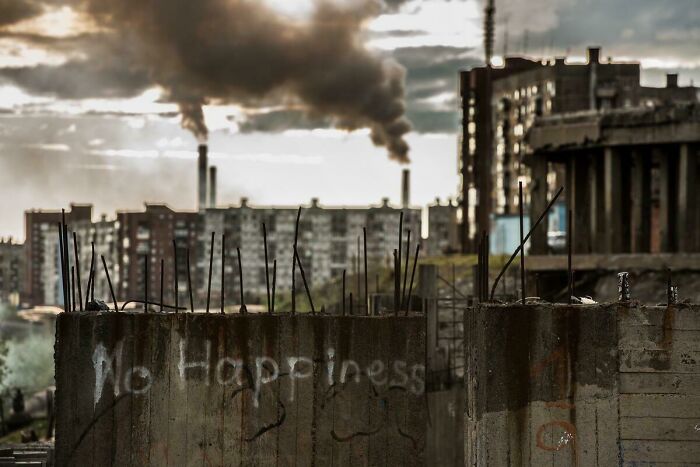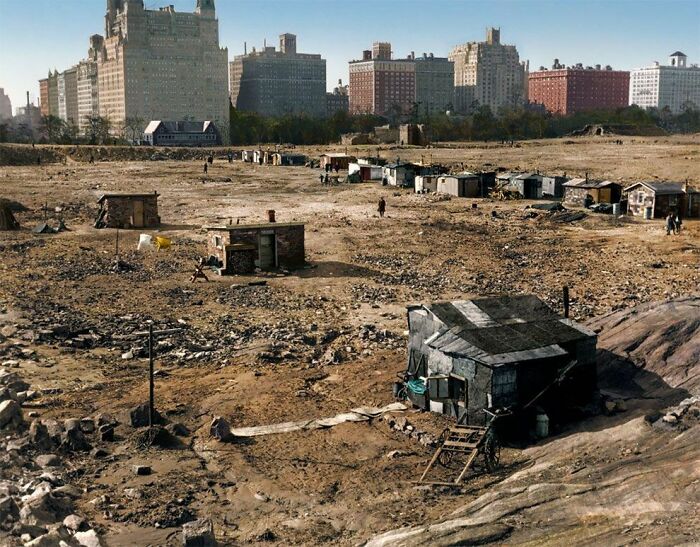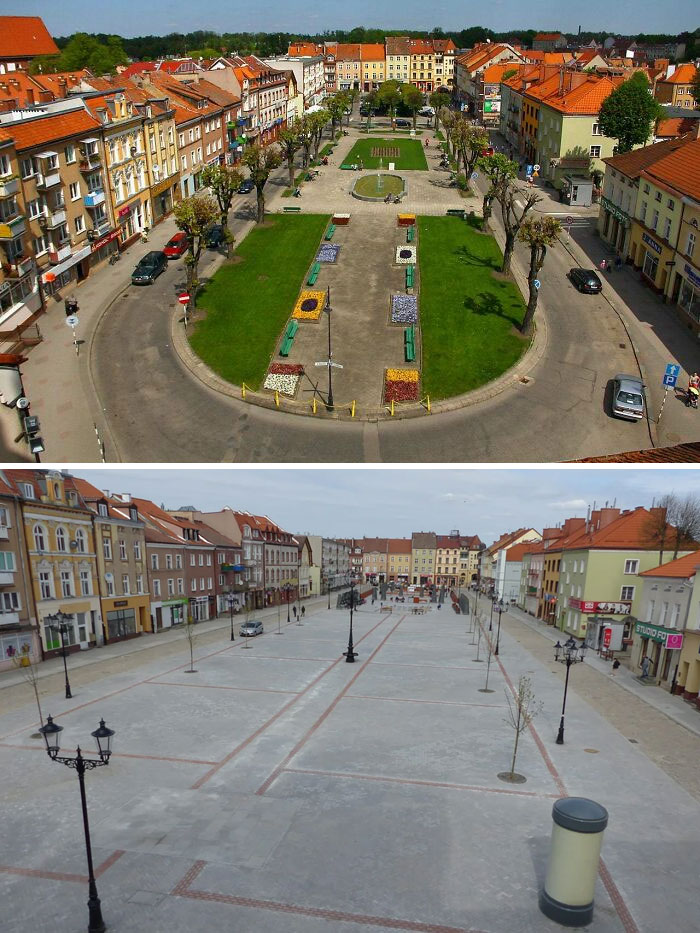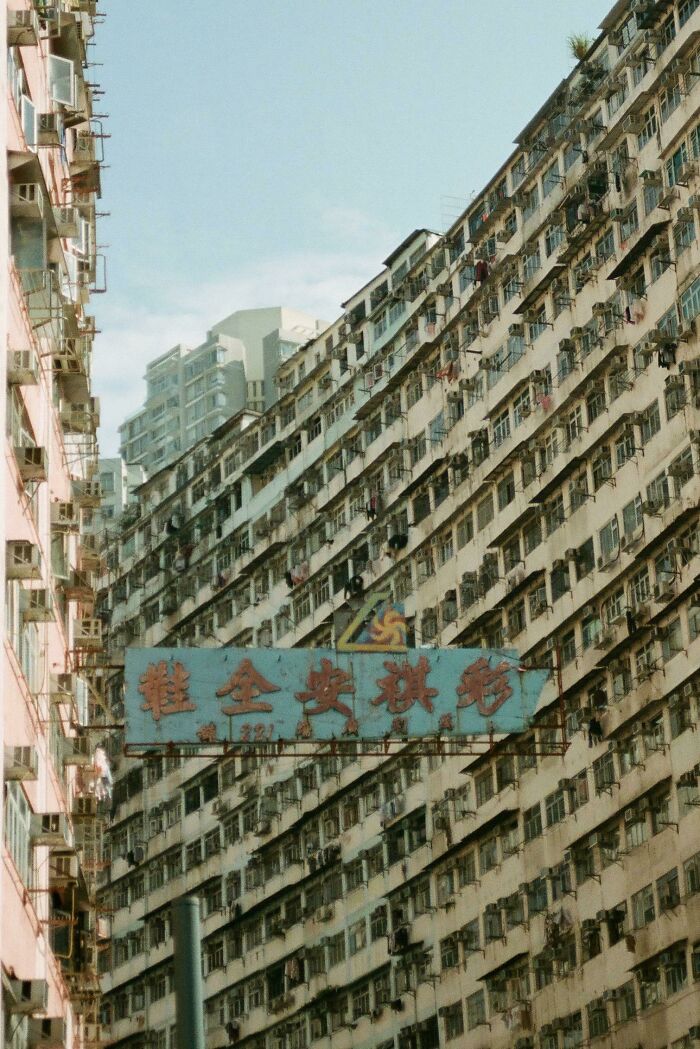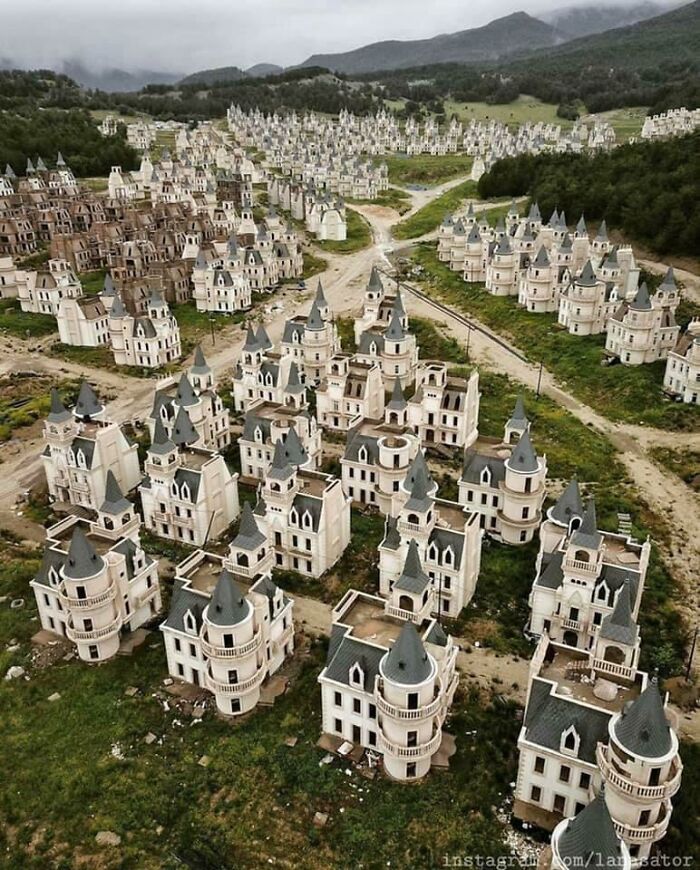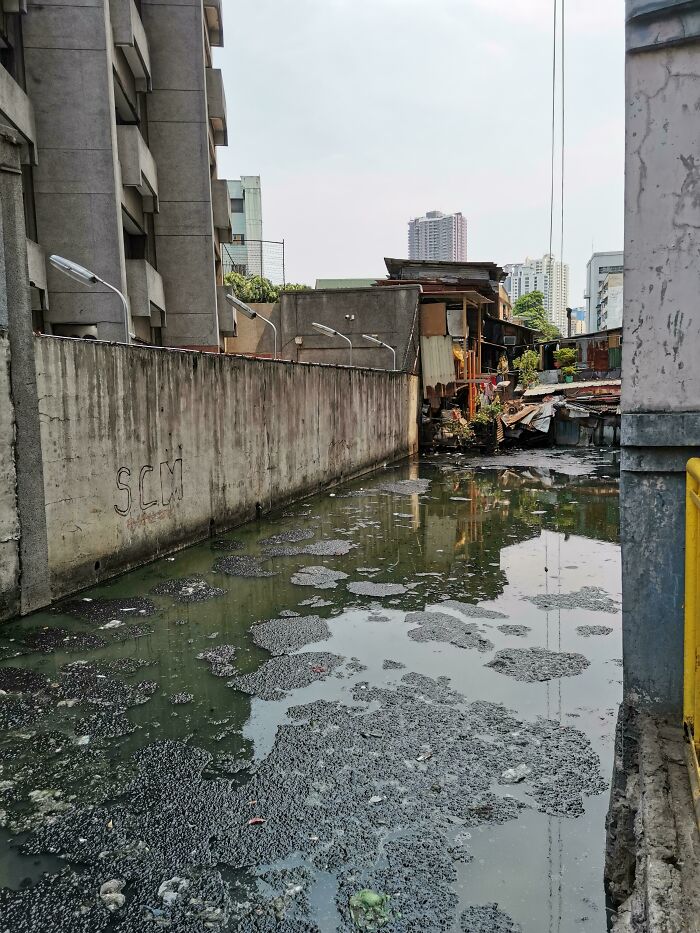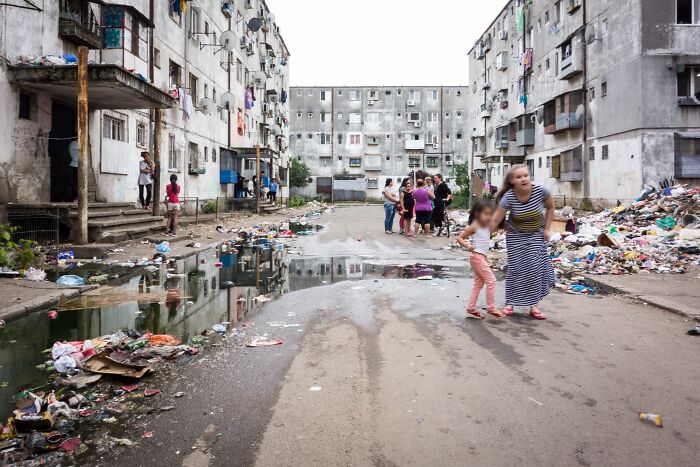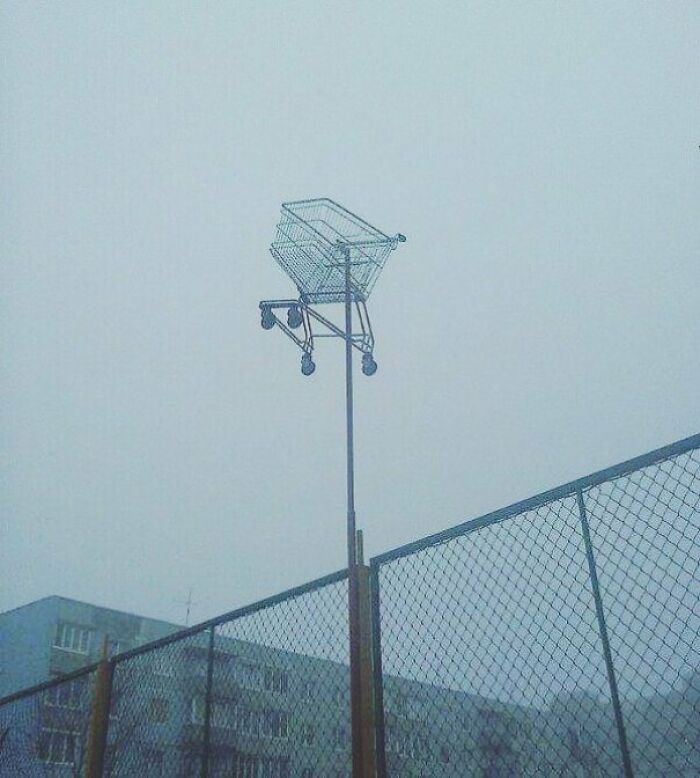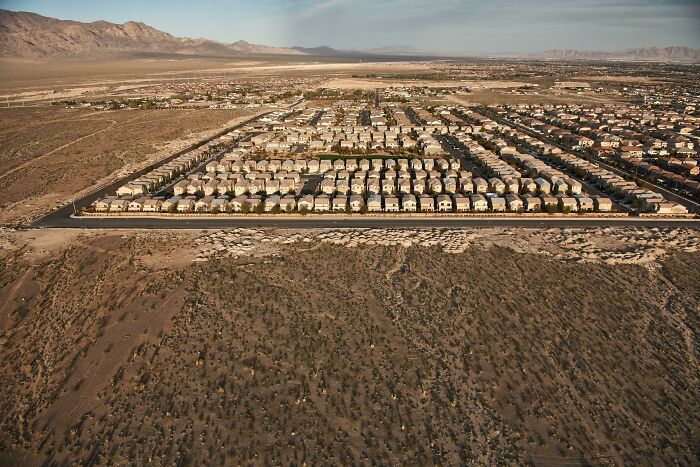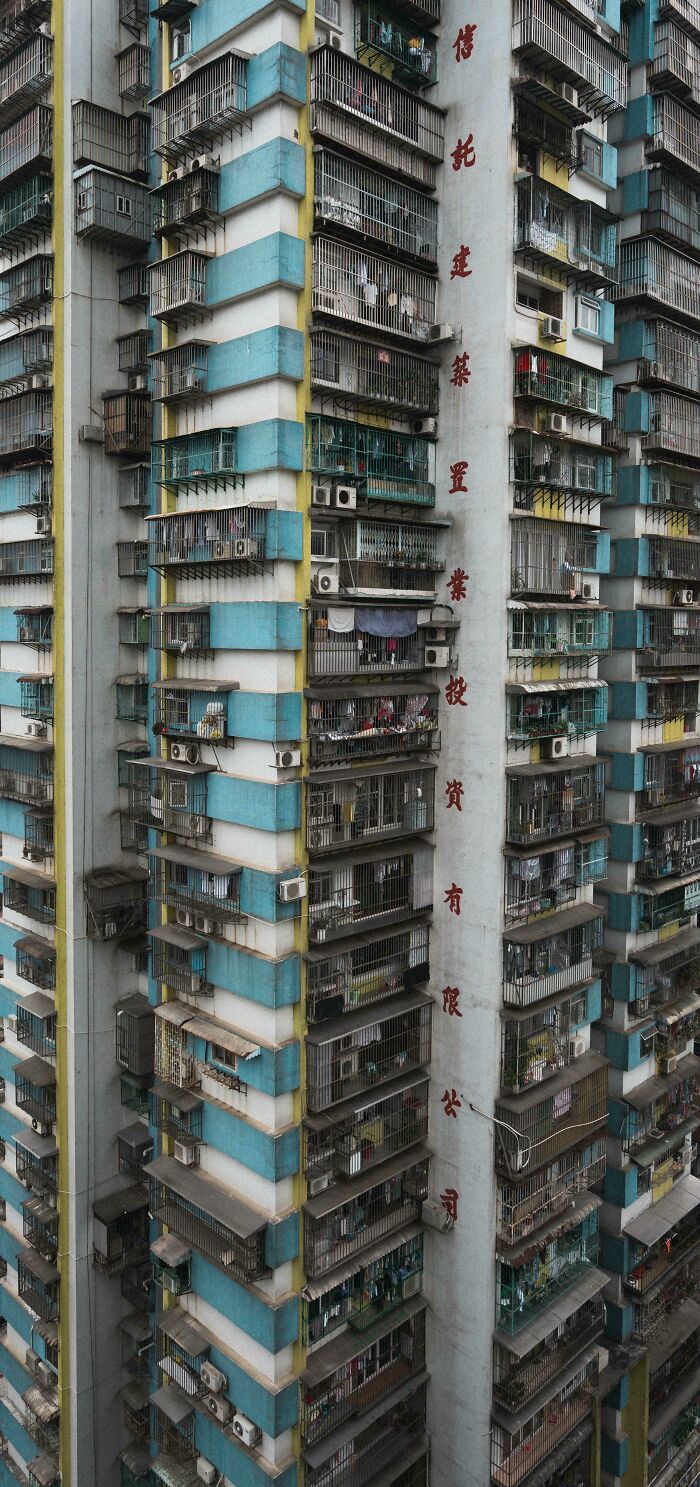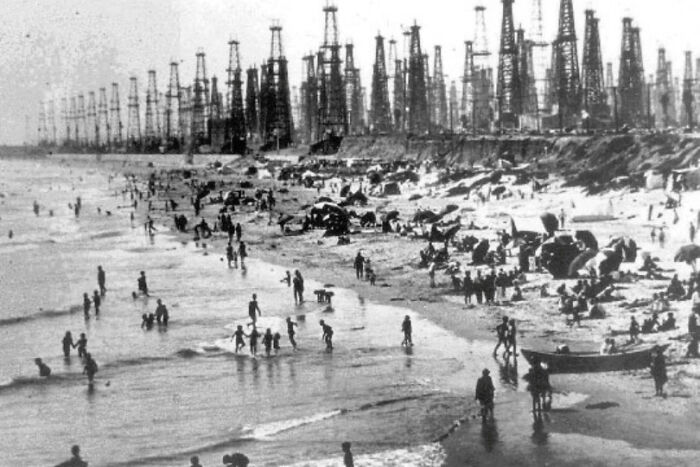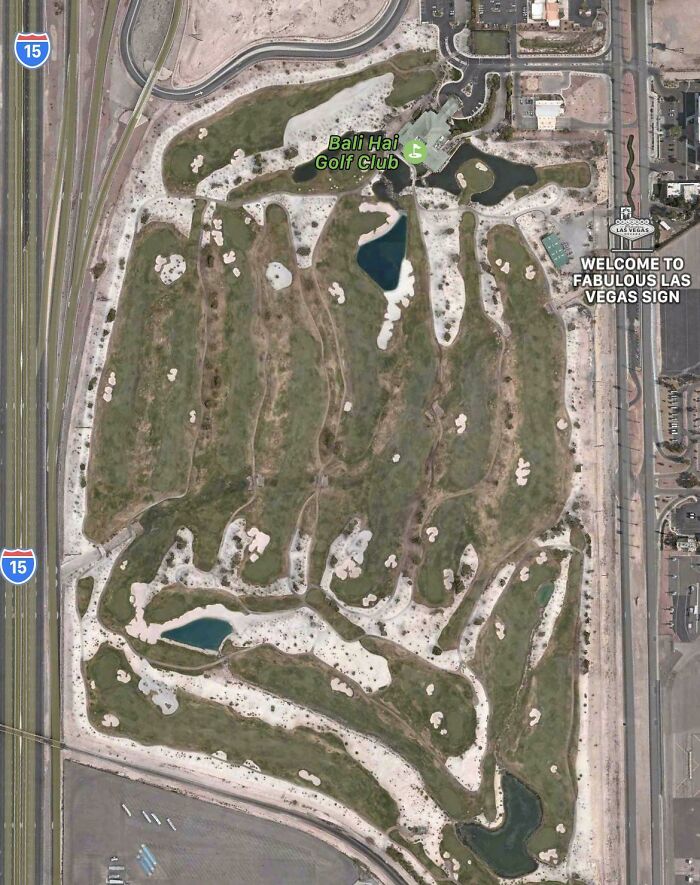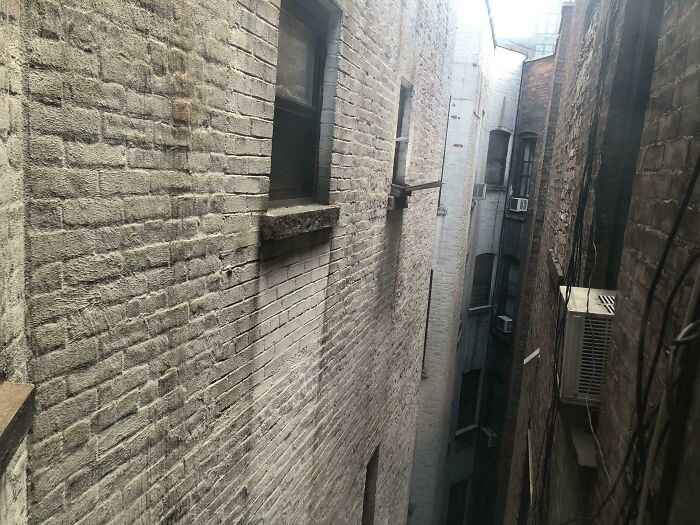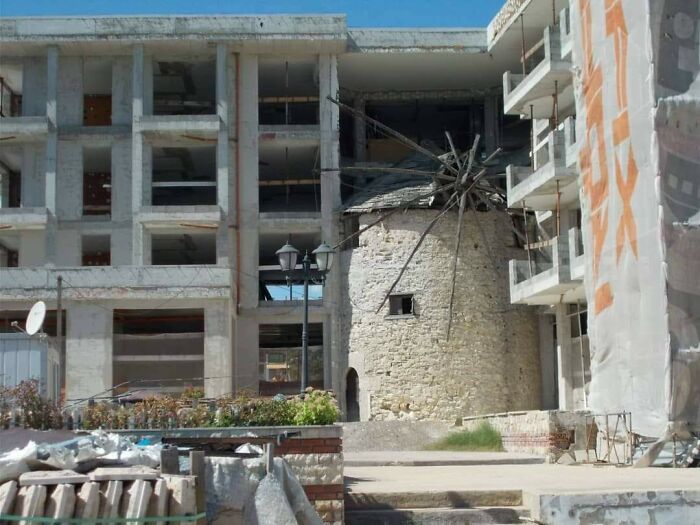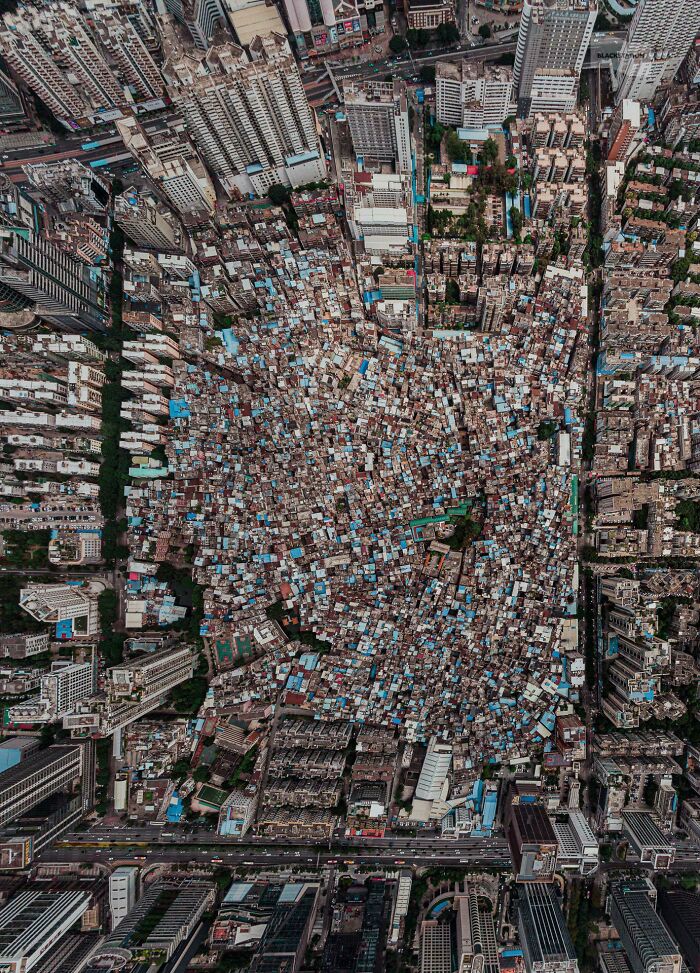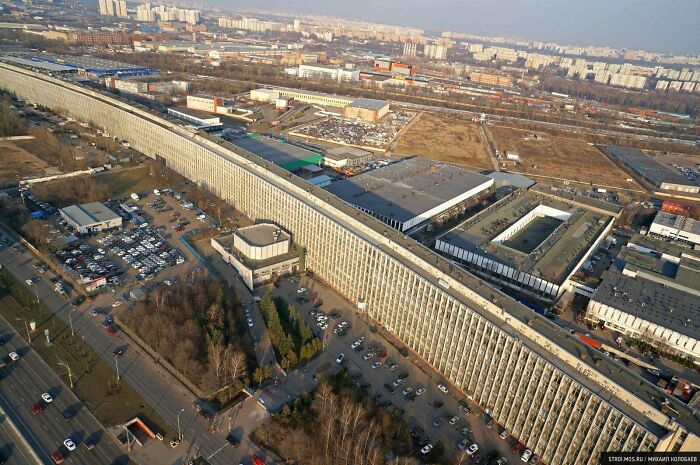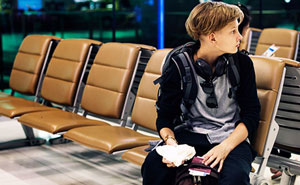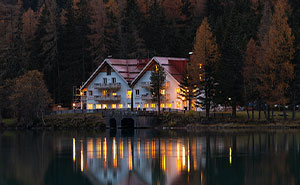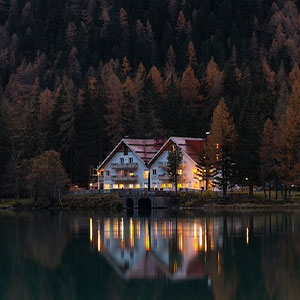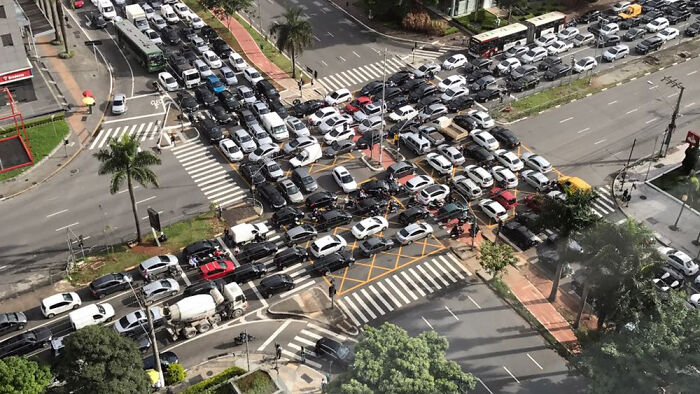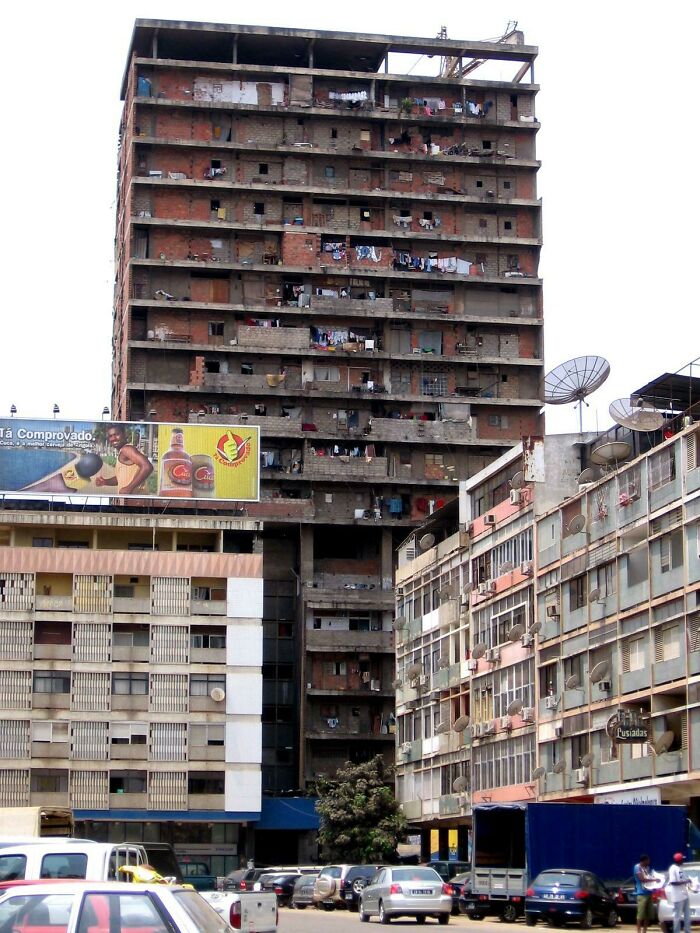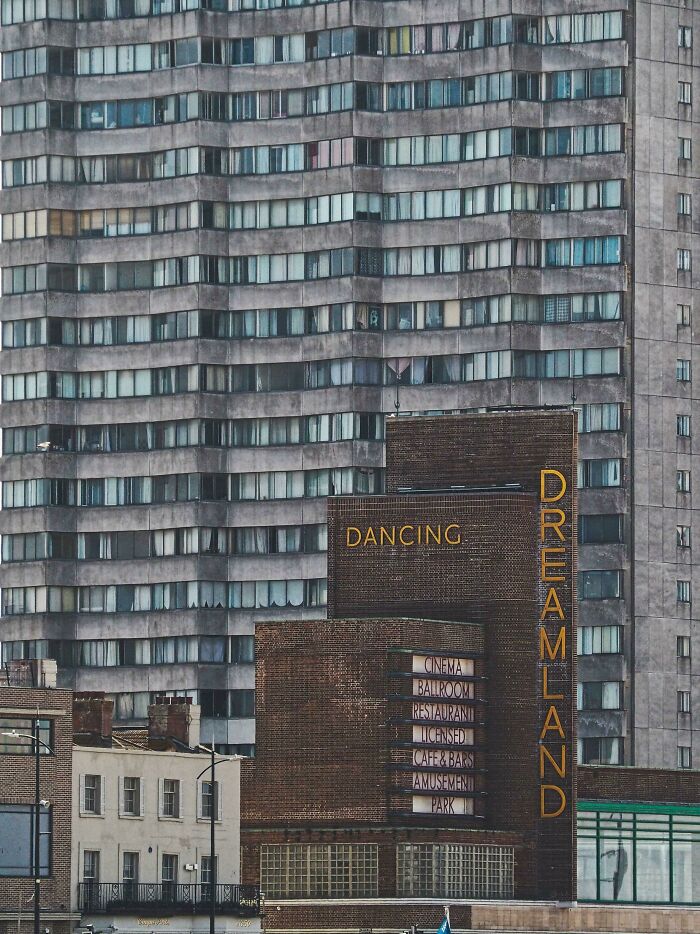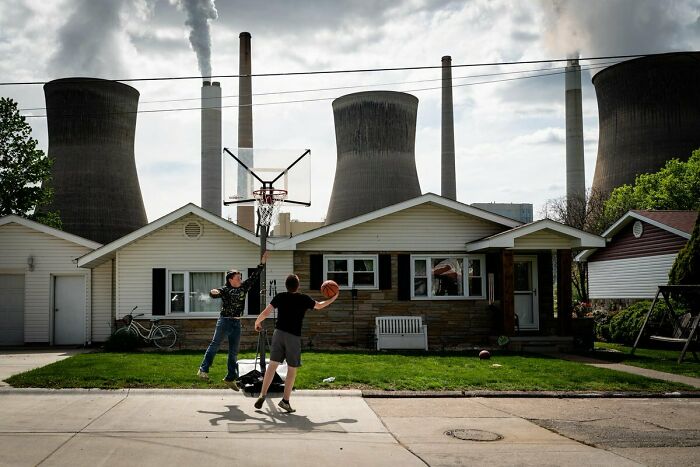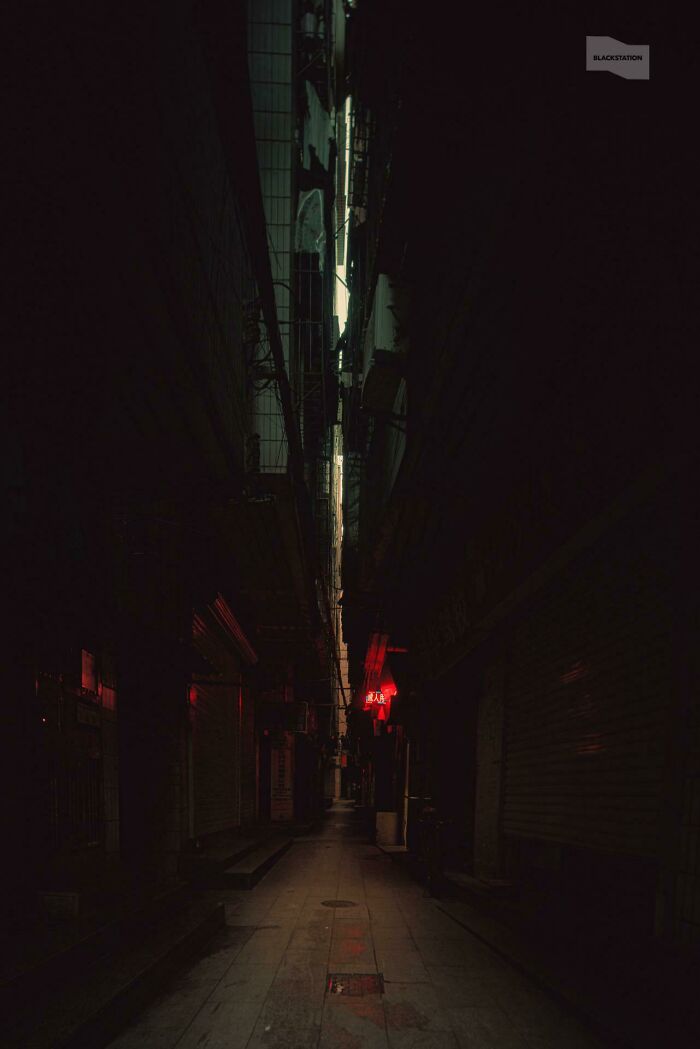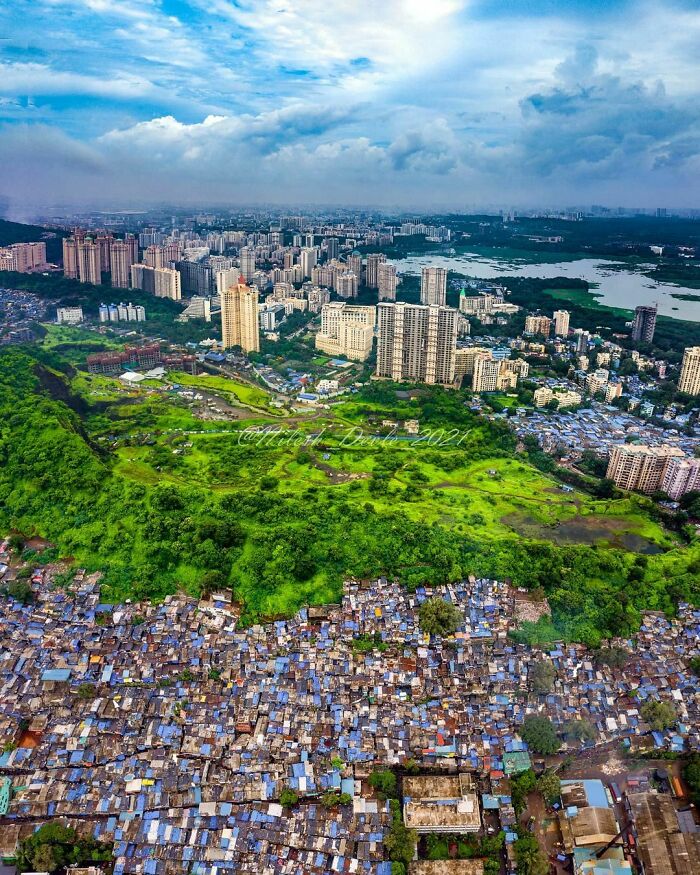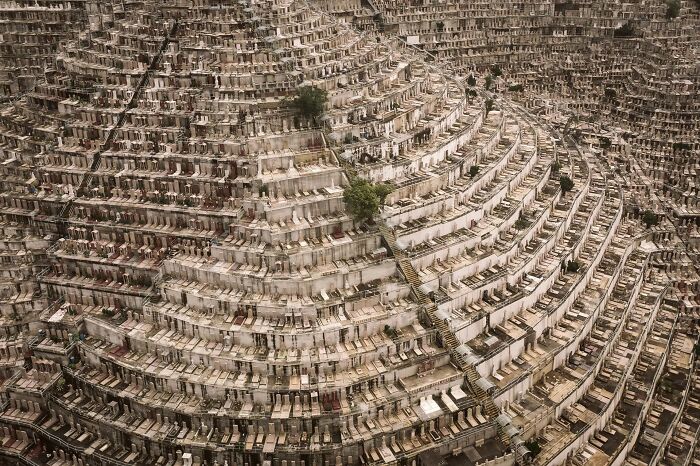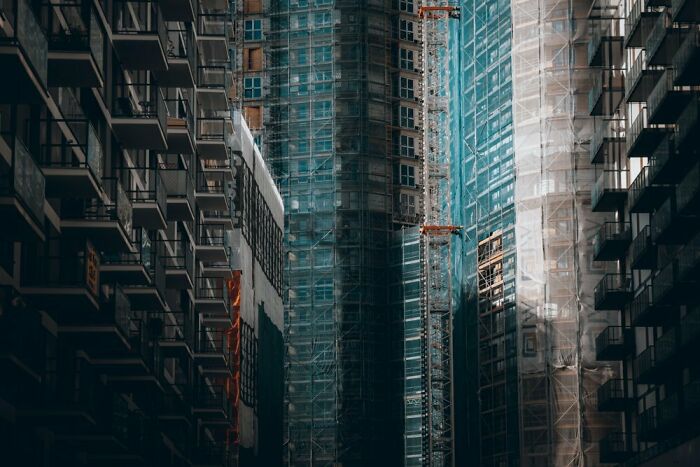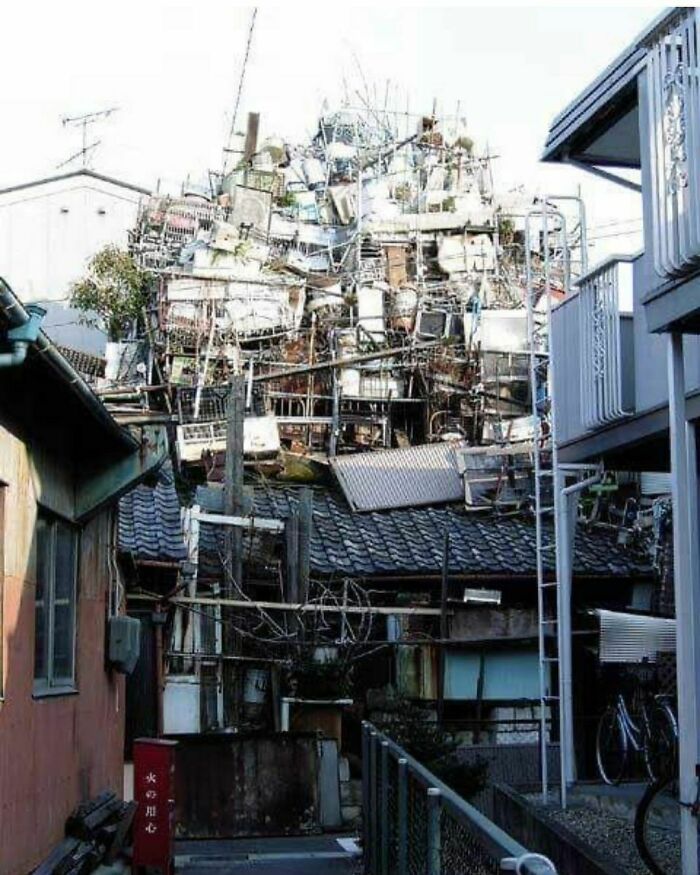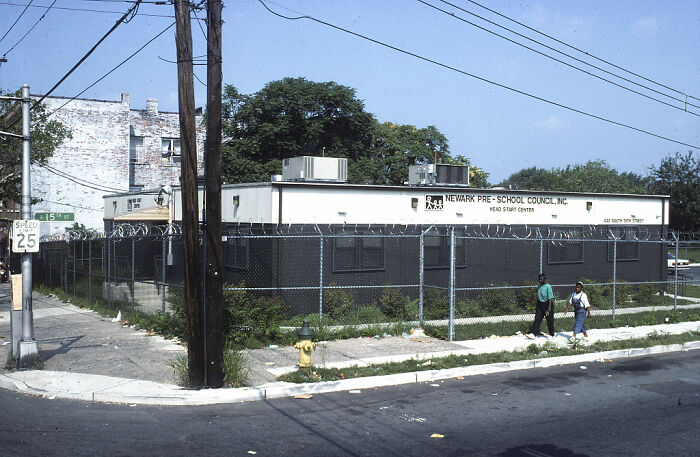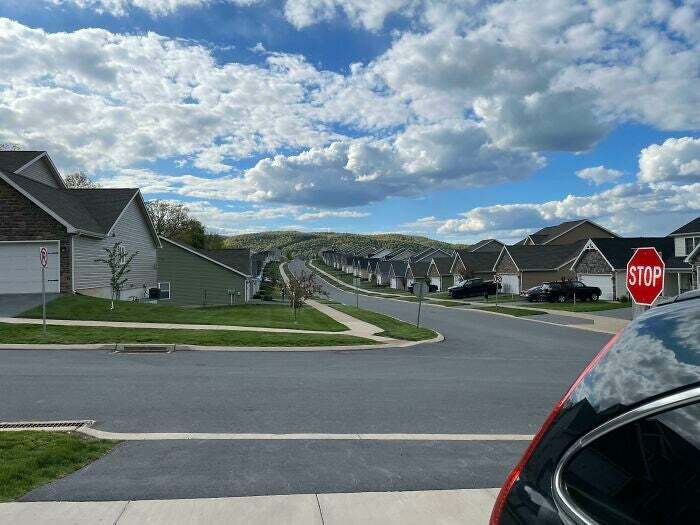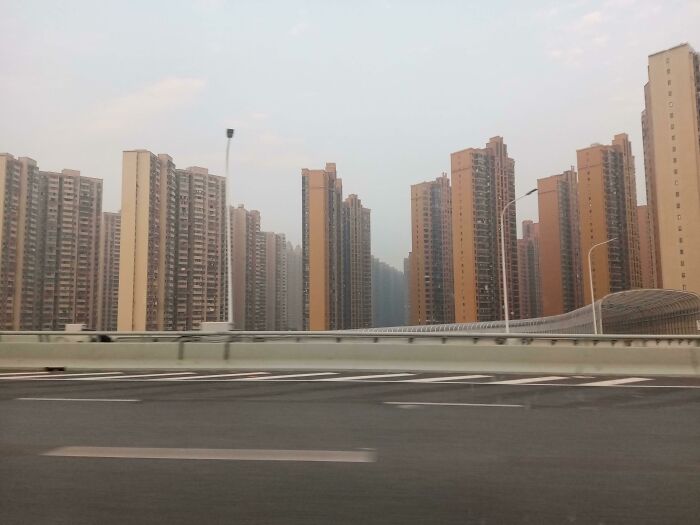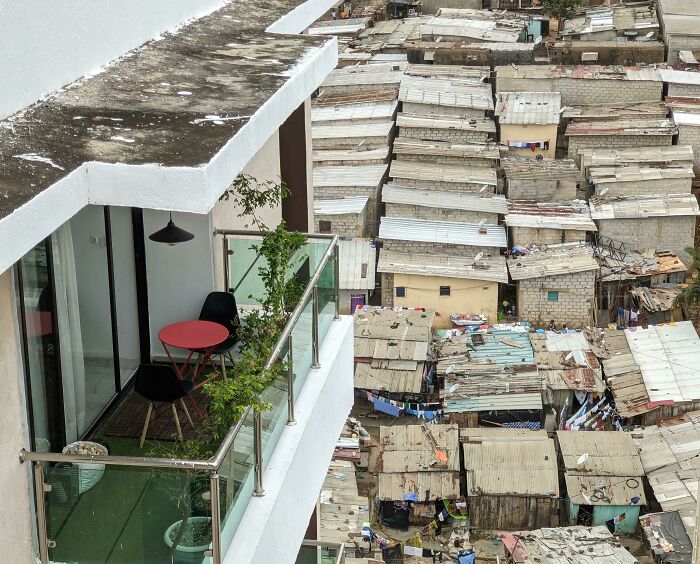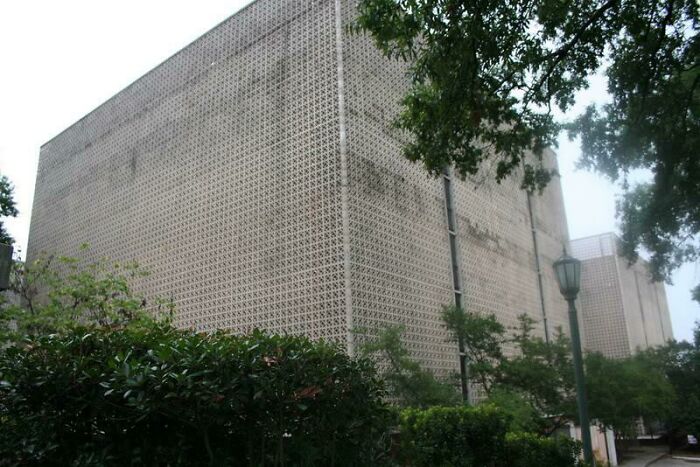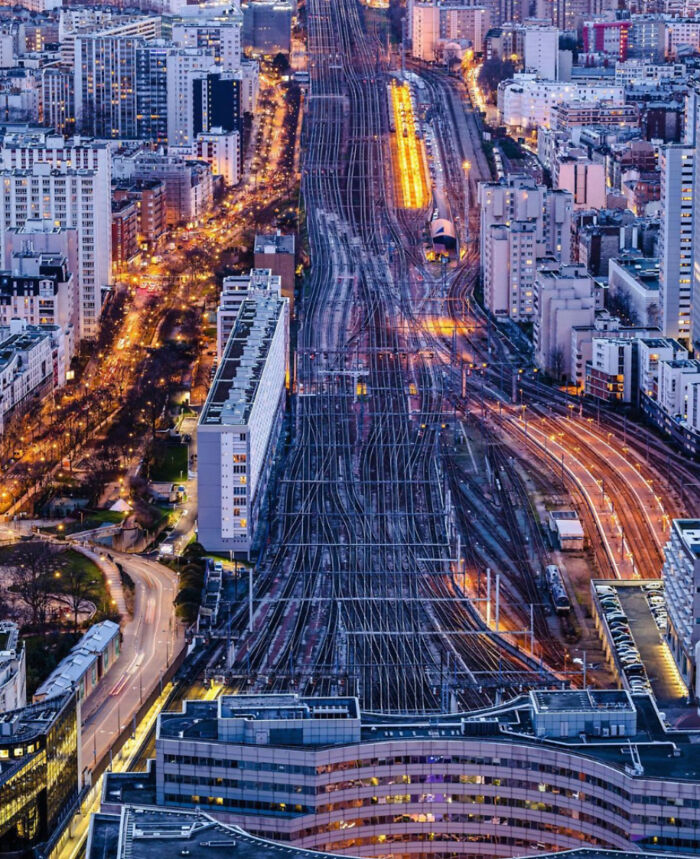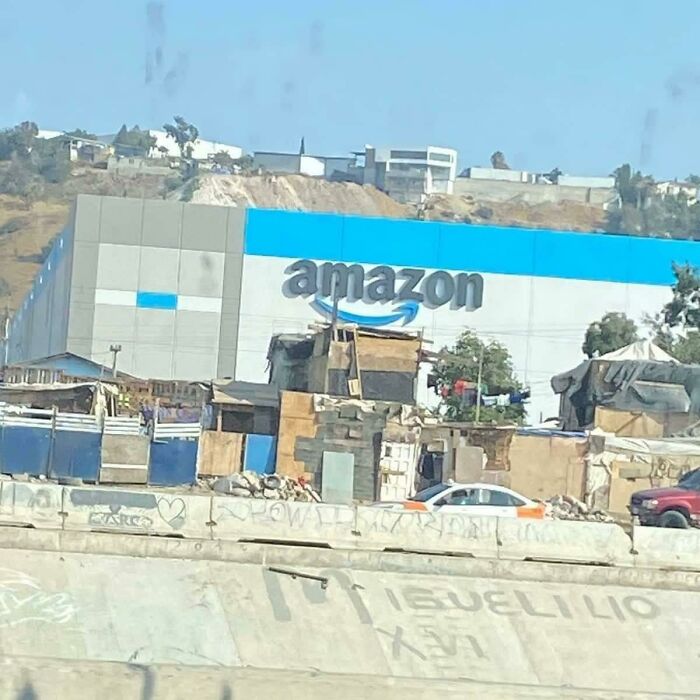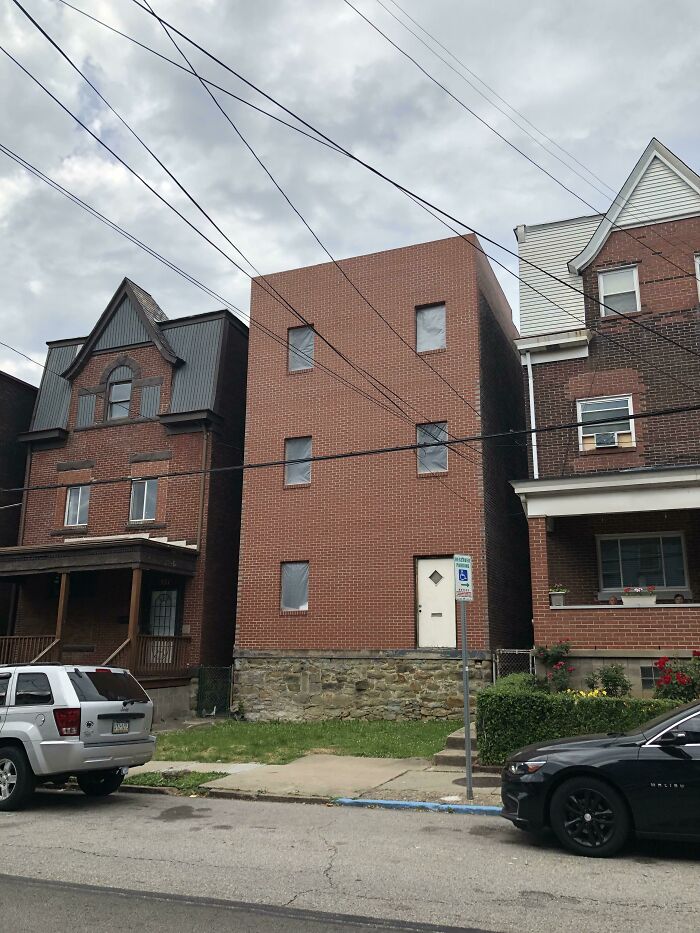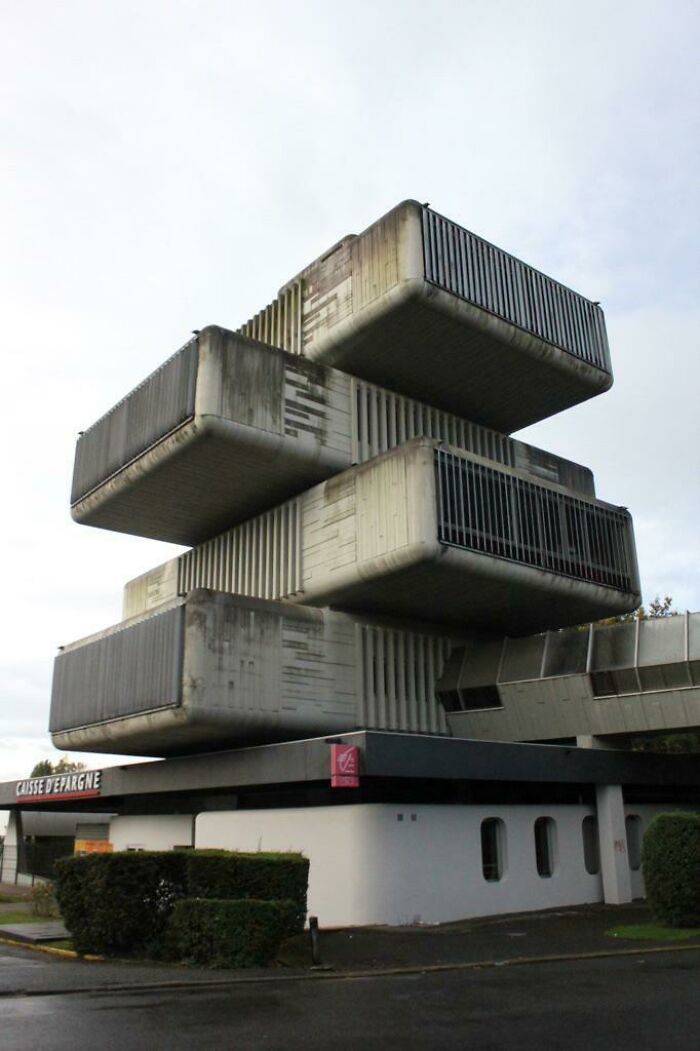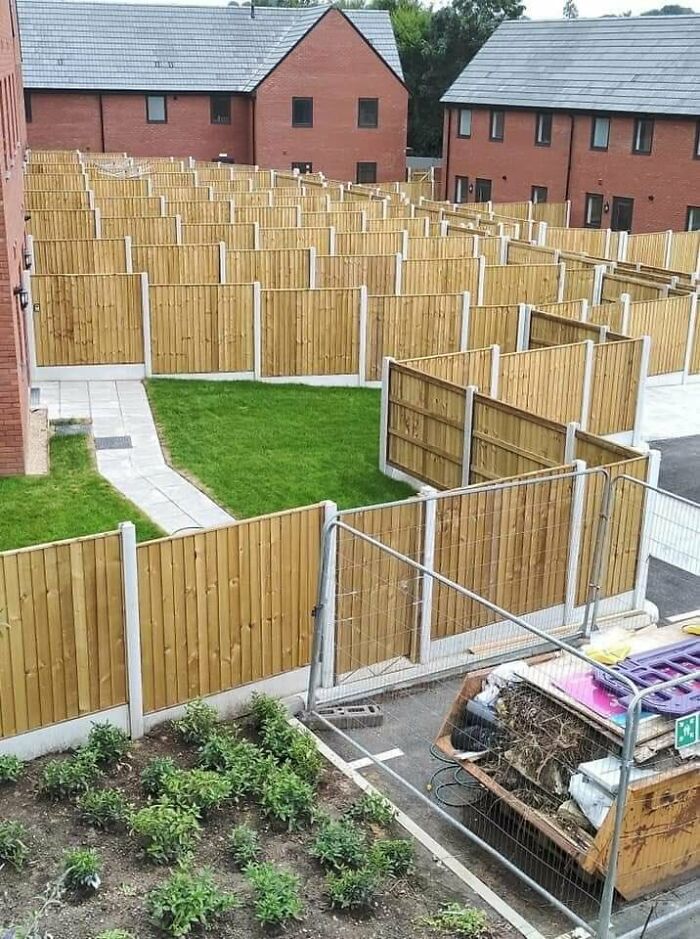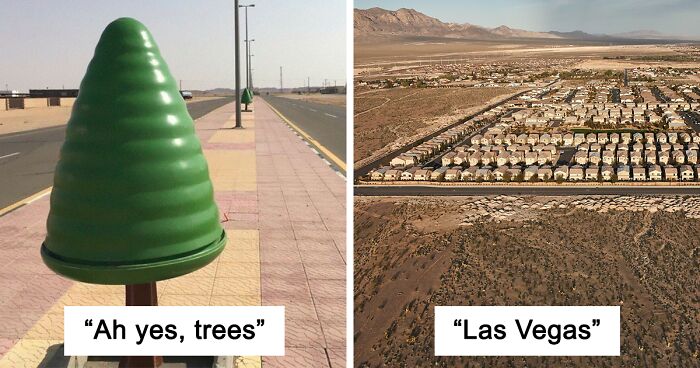
272Kviews
People On This Group Are Sharing Examples Of ‘Urban Hell’ That Look Like A Dystopian Movie But Are Sadly Real (40 New Pics)
Imagine waking up in a dystopian world where all trees are plastic, where all streets are buried in piles of trash, where pollution is so bad you can’t see the sky, and where rivers have turned into concrete.
Well, in fact, this is already happening in some places around the world, according to the eye-opening subreddit named Urban Hell. Its 689k members share “all the hideous places human beings built or inhabit,” according to the group’s description and you can see these are not pretty.
Scroll through the real-life examples of urban hell below that reveal the dark side of modern development that often remains invisible. Psst! More urban hell examples can be found in our previous post right here.
This post may include affiliate links.
A Boy Gathers Recyclable Items From A Semi-Dry Drain, At Taimoor Nagar In New Delhi
Magnitogorsk, One Of The Worst Polluted Cities In Russia. Only 28% Of The Children Born In The Town Are Fully Healthy
Inequality In Tembisa, South Africa
To find out more about urban living and the downsides of it, Bored Panda reached out to Lisa Yaszek, a Regents Professor of Science Fiction Studies at Georgia Tech, where she researches and teaches science fiction as a global language crossing centuries, continents, and cultures.
“The traditional advantage of urban life is that cities are engines of technoscientific development and cultural exchange, and that is true now more than ever, as we see new megacities of 10 million or more people springing up around the world,” Lisa explained.
According to the professor, since the development of large industrial cities in the 1800s, the downsides of urban living have become increasingly evident. “Cities organized around factories and power plants tend to be environmental disasters, with clouds of pollution sometimes literally blotting out the sun and preventing the growth of anything green on the ground.”
Ah Yes, Trees
San Francisco, USA
Norilsk, Russia
Norilsk was built by Gulag prisoners. Lead mines. The rain there is basically acid. Horrible that anyone still has to live there, such a hopeless place
Another downside is that “industrial and postindustrial cities also tend to attract disproportionate numbers of both highly skilled workers (often in finance or business) and unskilled laborers (often in factories or domestic work). As such, they make evident the very real and increasing gap between the rich and the poor.”
“Finally, cities tend to be surrounded by suburbs with single-family homes that, in theory, offer a better balance between nature and technology. In practice, however, suburbs have their own problems: their emphasis on visual uniformity is often part of a larger tendency toward cultural segregation, and the need to drive everywhere—including in and out of the city—only adds to our current environmental problems,” Lisa explained.
A Photo Of Central Park During The Great Depression (New York, 1933)
Town Square In Bartoszyce (Poland) Before And After
Residential Building In Hong Kong, Shot By Me On 35mm Film
When asked whether we can go backward and undo the harm that historic urban development practices have done to the physical world around us, Lisa said that she doesn’t think it’s possible. “But I do believe we can go forward in new ways,” she added.
“In particular, we can learn from our mistakes and rehabilitate the spaces we’ve already created, rather than simply abandoning or bulldozing over them. We can do this by either inventing new or recovering old technoscientific practices that better respect the coincidence between nature and culture and by practicing a different kind of urban design that springs from the lived reality of city-dwellers, rather than the abstract theorizing of planners and developers who often live in spaces far removed from the cities they design.”
Burj Al Babas, Turkey (The Largest Ghost Town In The World)
Disgusting Canal Near My Home In Manila. I Wish People Just Would Bother To Care How Our Environment Is Dying Fast
Ferentari, The Poorest Area Of Bucharest, Romania - Most Apartments Are Squatted And Have No Electricity, Hard To Believe This Is In The European Union
Lisa explained that if this sounds like utopian science fiction, that’s because it is. “Before Lang riveted the world with his image of the city as a gray, vertical dystopia that destroys nature and literally increases the gulf between rich and poor, stories by women of color including Bengali author Rokheya Hossain’s 'Sultana’s Dream' (1905) and American writer Pauline Hopkins’s Of One Blood (1902) presented readers with an alternative to urban hell: the 'garden megacity' that runs on solar power and where the equality of all people, regardless of race or gender, is made literal through horizontal urban design.”
The professor continued: “In the 1970s, American author and New York City dweller Samuel R. Delany’s Triton and Dhalgren rebutted the narrative of 'white flight' from permanently ruined cities by celebrating the excitement he saw in the women, people of color, and LGBTQ+ people around him moving into cities and making them their own. This led Delany to imagine what he called 'heterotopian' urban spaces where people use technology and art to create so many new identities and communities that it becomes impossible for one group to economically or politically dominate another.”
The Flag Of Urban Hell
Las Vegas
Macau
“More recently, works including Caribbean-Canadian author Nalo Hopkinson’s Brown Girl in the Ring (1998); Nigerian digital artist Olelekan Jeyifous’s 'Shanty Megastructures' (2015) and 'Frozen Zone' (2021), and American filmmaker Ryan Coogler’s Black Panther (2018) have created what I call a 'nutopian' tradition of speculative storytelling celebrating how indigenous peoples around the world draw and weave together their own diverse knowledge systems with Western ones to begin the long but literally fruitful process of reclaiming urban spaces and creating better futures for all,” the professor explains.
Huntington Beach, California, During The Oil Boom Of 1928
Not Sure If This Fits The Sub, Gallons And Gallons Of Water Wasted Just To Keep Lush Green Golf Fields In The Middle Of The Desert
This Beautiful View From My NYC Apartment
The reason why Lisa has hope—”and the reason that all these authors have such beautiful future visions of the reclaimed city—is because real people are trying to build such futures for us now, in the real world!”
“For example, here in the U.S., urban farmers Will Allen and Emmanuel Pratt have won MacArthur 'genius' grants for their innovative use of both indigenous and Western farming practices to replace urban food deserts with locally owned food oases, while members of the Black Quantum Futurism Collective hold events to collect and share Black history and urban knowledge.”
16th Century Mill Surrounded By Brand New Concrete In Seaside Bulgaria
Guangzhou Aerial
"Lying Skyscraper" In Moscow. About 736m Long
According to Lisa, the conversion of old rail tracks into green beltlines through cities like New York and Atlanta indicates things are taking a turn for the better. “It shows real attention to the way that people actually live in and use their cities, as well as the possibility that we can bring together nature and infrastructure in ways that benefit the many rather than just the few.”
Interestingly, this isn’t just happening in the U.S. “In Kisumu City, Kenya, the Food Liaison Advisory Group is working to reconnect the city with the larger region to ensure supplies of healthy food and give rural farmers access to wider markets, while urban dwellers in India can use the 'Clean India' app to track and help resolve sanitation issues in their own and other nearby cities,” Lisa explained and added that she can’t wait to see what kinds of new and hopefully more utopian science fictional cities these actions inspire.
Intersection Of Two Avenues In Sao Paulo, Brazil
"Vertical Slum" Luanda Angola
Margate, United Kingdom
In the not-so-distant past, urbanization was understood as this ideal mode of modern living, the one which seemed to be very efficient, orderly, and adaptable to individual needs. Most importantly, it aimed at catering to a rapidly soaring population that found itself lacking in space, infrastructure, and opportunities in suburban areas. Our economies have become more industrialized over the past few hundred years, which made people move to cities.
The United Nations (2018) predicted that by the year 2050, 68% of the global human population would live in urban areas, constantly growing in surface. And today, we no longer talk about cities, there’s a new term for cities much bigger than a 10-million population and it’s called a “megacity.” Tokyo is an example of a megacity with nearly 40 million residents.
Children Playing Basketball Near The John E. Amos Coal-Fired Power Plant In Poca, West Virginia
Distance Between Two Apartments, Guangzhou
Inequality In Mumbai, India
Sadly, I have never seen a movie or a photo that has inspired me to want to visit India.
A Graveyard In Hong Kong
Bliska Wola Tower, Warsaw, Poland. Sunlight Rarely Reaches The Bottom Floors, And Some Apartments Are As Small As 18 M²
Only Surviving Photo Of A Hoarder House Demolished Around 2007 In Nagoya, Japan
Preschool In Newark, NJ, 1994
Copy Paste
Wuhan, China
Abidjan, Ivory Coast
Yeah I did, in fact, just went a bit existential and philosophical over this. Bite me. To the photographer seriously enter photography contests
My Dorm At The University Of South Carolina (1998), Since Demolished
Paris, France. A Studio In The Building Between The Boulevard And The Train Rails Highways Starts At 800€/Months. If You Qualify!
Amazon’s New Fulfillment Center In Tijuana, Mexico
Beautiful Pittsburgh Architecture
A Famous Bank In Pau, France
Fencemageddon 2 - The Panelling! Pretty Standard View Of English / Irish Estates
I don't see anything wrong with that. This is clearly new estate looking at state of roofing and colour of wood in fences so it's temporarily plain. When people will move in I guarantee there will be bushes and other plants in the gardens. Why fencing you ask? Idk, I personally like my privacy and wouldn't like neighbours to wander around my garden and their dogs sh*t on the grass scaring my kids.
Note: this post originally had 66 images. It’s been shortened to the top 40 images based on user votes.
We need to stop reproducing. There are way too many humans in the world. (I don't have any kids btw)
It is very worthwhile watching the documentary with David Attenborough - How Many People Can Live On Planet Earth.
Load More Replies...Common denominator: overpopulation. It is what it is. I still don't understand the need to have 6 or 8 kids. Aren't 2 enough?
Kinda gross when you think about all the average people who have about 20 children (there’s too many Mormon families out there)
Load More Replies...This makes me so sad for the human race sand our planet. I agree with Fiona- too many humans. We need to slow (or halt) population growth. Why is this topic so taboo?
It is not "taboo" per se....but complicated. Who gets to have kids? How many do they get? What happens to kids conceived over the allowed number? Do we issue a birth permit? Do we charge a fee for it? How much? In what currency? What about twins? Triplets? And WHO gets to decide all of this?? It is SO much more than a simple "stop population growth"...once you actually start thinking about it, it becomes an extremely convoluted enterprise.
Load More Replies...Too many people. The population has doubled in my lifetime and life is worse for it.
The problems we see here are mostly due to unregulated capitalism that sees the rich getting richer and the poor getting poorer. It’s mostly a problem of repartition of resources, not that there are too many people on Earth. It’s also a problem of using far too much resources by a relatively small number of people in rich countries. The first step to finding a solution is to stop consuming so much and to share resources more equally.
Load More Replies...Yes, unchecked capitalism is deeply flawed and corrosive but many of these images are from communist societies. The sweet spot is in between: Democratic Socialism
Load More Replies...Having never been a city person, these pictures make me so glad I live where the only skyscrapers are mountains and tall trees. I honestly don't know how anyone can live like that. Constant noise. No room to breathe. Truly urban hell. And so sad that it's growing like a cancer.
I think COVID has made people realize that they can work just as efficiently remotely, which should start to reverse the urban growth trend. I've lived a large portion of my life in both rural and urban areas and I agree with you. Cities are obnoxious, cluttered, dirty cesspools.
Load More Replies...For your consideration: Lunik IX, a Roma "ghetto" in Slovakia. Photo is before the pope´s visit so people would pretend to give a damn about the people there. 5940228_12...f-jpeg.jpg 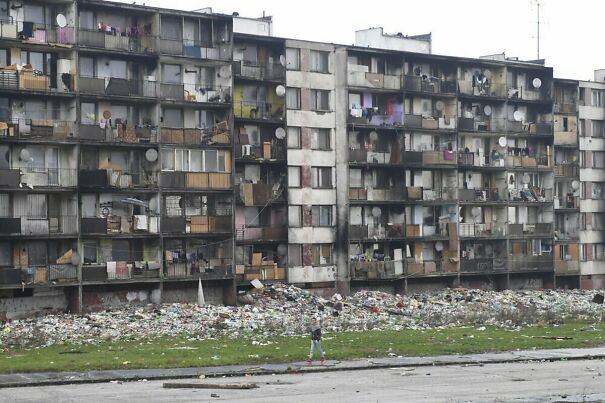
After seeing this I realized how lucky I am living by a beautiful lake in the middle of Europe. I won't ever complain again!
I'm glad I persevered til the last image. It's important for us to know how we're treating the planet, each other and ourselves. I agree with comments here about capitalism. It had its golden era in the 20th century. But the post capitalist era of the 21st century reveals its decay. Be great if we could proactively fix the 7 Wicked Problems in time. But we won't. It's not the nature of the human species. The time frame we take meaningful action is often 'too late'.
It's not just the population. It is how our world is setup. We have places with too much people, too little land. Then we have lands that aren't populated with no infrastructure. We also have places where all the resource goes to and then there are places where resources are produced but not retained.
As the pollution, especially plastics and organophosphates continues to rise fertility rates fall, and cancer rates rise, crowding leaves populations more susceptible to plagues and pandemic and famines, perhaps we will eventually cull ourselves of over population in this way and the smaller population can enjoy what is left of our destroyed biosphere.
Wow, just WOW. I've bitched and mumbled about my house and neighbors but after looking at these I'm shutting up and looking at ways to help others.
I'm not getting into the debate of overpopulation... I believe that more should be done globally to improve the housing situation for all people- an infrastructure that allows people to live in clean, safe housing with running water and proper sanitation that doesn't have to "cost the earth".
We need to stop reproducing. There are way too many humans in the world. (I don't have any kids btw)
It is very worthwhile watching the documentary with David Attenborough - How Many People Can Live On Planet Earth.
Load More Replies...Common denominator: overpopulation. It is what it is. I still don't understand the need to have 6 or 8 kids. Aren't 2 enough?
Kinda gross when you think about all the average people who have about 20 children (there’s too many Mormon families out there)
Load More Replies...This makes me so sad for the human race sand our planet. I agree with Fiona- too many humans. We need to slow (or halt) population growth. Why is this topic so taboo?
It is not "taboo" per se....but complicated. Who gets to have kids? How many do they get? What happens to kids conceived over the allowed number? Do we issue a birth permit? Do we charge a fee for it? How much? In what currency? What about twins? Triplets? And WHO gets to decide all of this?? It is SO much more than a simple "stop population growth"...once you actually start thinking about it, it becomes an extremely convoluted enterprise.
Load More Replies...Too many people. The population has doubled in my lifetime and life is worse for it.
The problems we see here are mostly due to unregulated capitalism that sees the rich getting richer and the poor getting poorer. It’s mostly a problem of repartition of resources, not that there are too many people on Earth. It’s also a problem of using far too much resources by a relatively small number of people in rich countries. The first step to finding a solution is to stop consuming so much and to share resources more equally.
Load More Replies...Yes, unchecked capitalism is deeply flawed and corrosive but many of these images are from communist societies. The sweet spot is in between: Democratic Socialism
Load More Replies...Having never been a city person, these pictures make me so glad I live where the only skyscrapers are mountains and tall trees. I honestly don't know how anyone can live like that. Constant noise. No room to breathe. Truly urban hell. And so sad that it's growing like a cancer.
I think COVID has made people realize that they can work just as efficiently remotely, which should start to reverse the urban growth trend. I've lived a large portion of my life in both rural and urban areas and I agree with you. Cities are obnoxious, cluttered, dirty cesspools.
Load More Replies...For your consideration: Lunik IX, a Roma "ghetto" in Slovakia. Photo is before the pope´s visit so people would pretend to give a damn about the people there. 5940228_12...f-jpeg.jpg 
After seeing this I realized how lucky I am living by a beautiful lake in the middle of Europe. I won't ever complain again!
I'm glad I persevered til the last image. It's important for us to know how we're treating the planet, each other and ourselves. I agree with comments here about capitalism. It had its golden era in the 20th century. But the post capitalist era of the 21st century reveals its decay. Be great if we could proactively fix the 7 Wicked Problems in time. But we won't. It's not the nature of the human species. The time frame we take meaningful action is often 'too late'.
It's not just the population. It is how our world is setup. We have places with too much people, too little land. Then we have lands that aren't populated with no infrastructure. We also have places where all the resource goes to and then there are places where resources are produced but not retained.
As the pollution, especially plastics and organophosphates continues to rise fertility rates fall, and cancer rates rise, crowding leaves populations more susceptible to plagues and pandemic and famines, perhaps we will eventually cull ourselves of over population in this way and the smaller population can enjoy what is left of our destroyed biosphere.
Wow, just WOW. I've bitched and mumbled about my house and neighbors but after looking at these I'm shutting up and looking at ways to help others.
I'm not getting into the debate of overpopulation... I believe that more should be done globally to improve the housing situation for all people- an infrastructure that allows people to live in clean, safe housing with running water and proper sanitation that doesn't have to "cost the earth".
